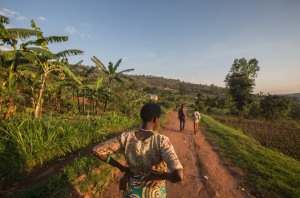The Committee to Protect Journalists is on the ball these days, raising warnings about threats against journalists in the DRC and in Kenya and publishing the first of a series of reports from Burundi. Not too much to be optimistic about, though.
Congolese journalist Robert Shemahamba was taken into custody by intelligence agents after moderating a political affairs talk show program which included guests’ criticisms of municipal officials of Uvira, a town in eastern Congo. The situation wedged a public split of goverment officials at the national level: The Congolese communications minister told CPJ that he hopes the interior minister will resolve the matter.
A Kenyan journalist is getting death threats for investigating — yes — the murder of another Kenyan journalists. CPJ says most Kenyan newspapers wouldn’t touch the story of Francis Nyaruri, who was murdered after exposing corruption in the local administration of a Western town. Nation reporter Sam Owida was a friend of Nyaruri’s and has pursued the story, which CPJ says many other journalists were afraid to touch.
A forum on political space turned a little tense when a Rwandan government advisor accused a local journalist of being in cahoots with “enemies of the state” (apologies to news roundup readers for the repetition).
Finally, CPJ visits Burundi and talks with local journalists about the threats they face as the administration of newly re-elected Pierre Nkurunziza clamps down on anything that smells of opposition — and since the controversial election resulted in the flight of the country’s opposition politician, that leaves the media the target:
“The media is now considered part of the opposition,” said Pacifique Nininahazwe, head of a civil society umbrella group called the Forum for the Reinforcement of Civil Society (FORSC). “Now if you do an interview with the former rebels, the National Liberation Forces (FNL), the radio station is labeled as opposition.”
And in a quick-follow up, CPJ tells me that kidnapped Ugandan journalist Arafat Nzoti was freed after nine days; his captors were reportedly state security agents.



